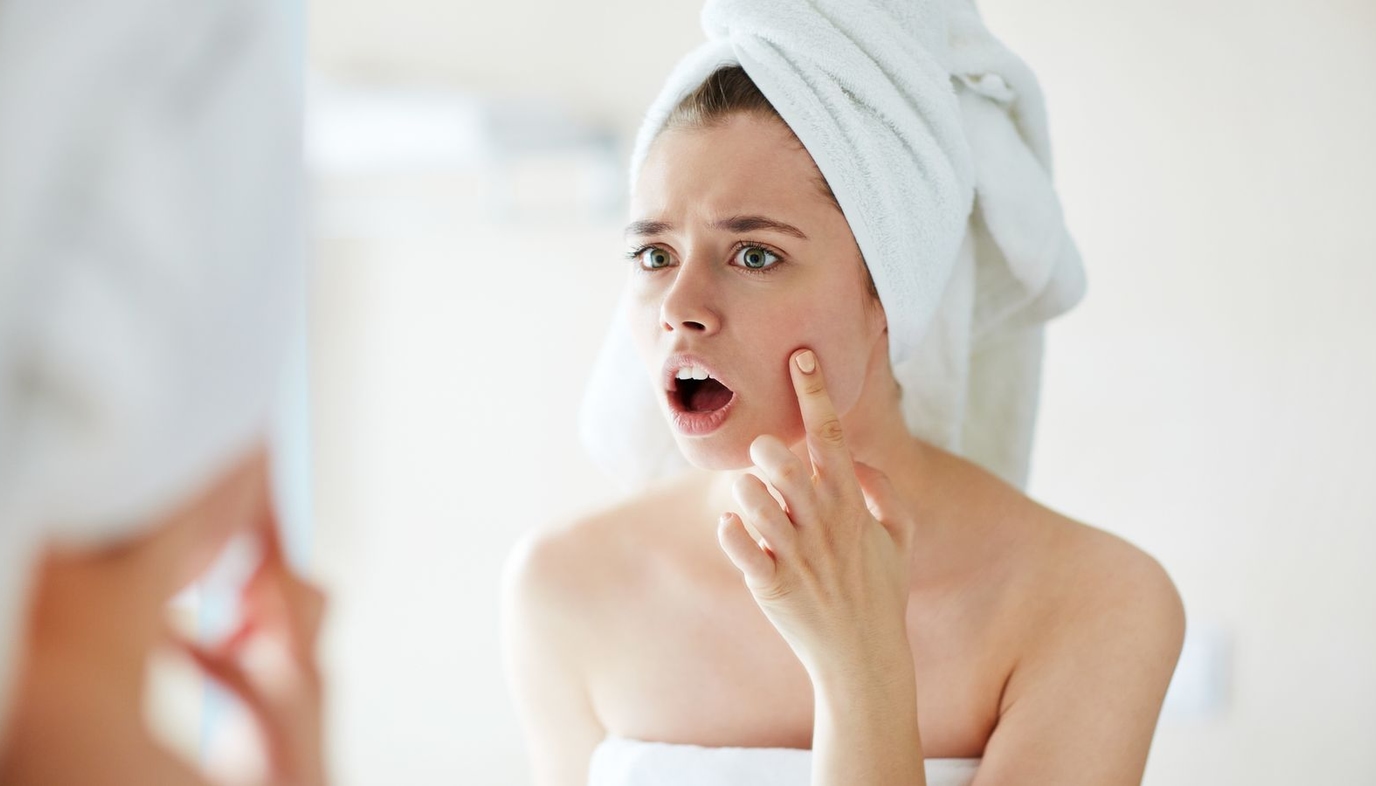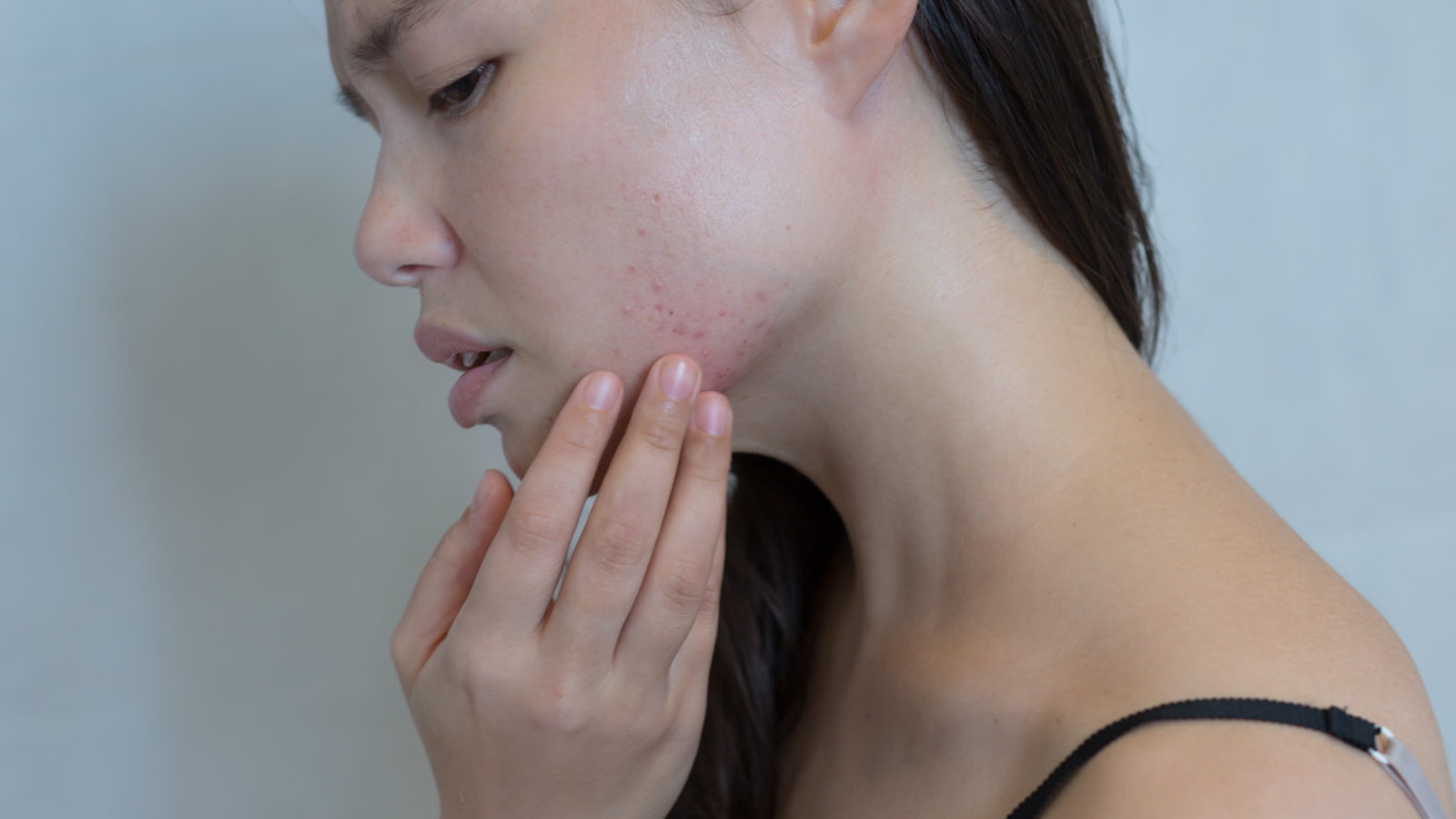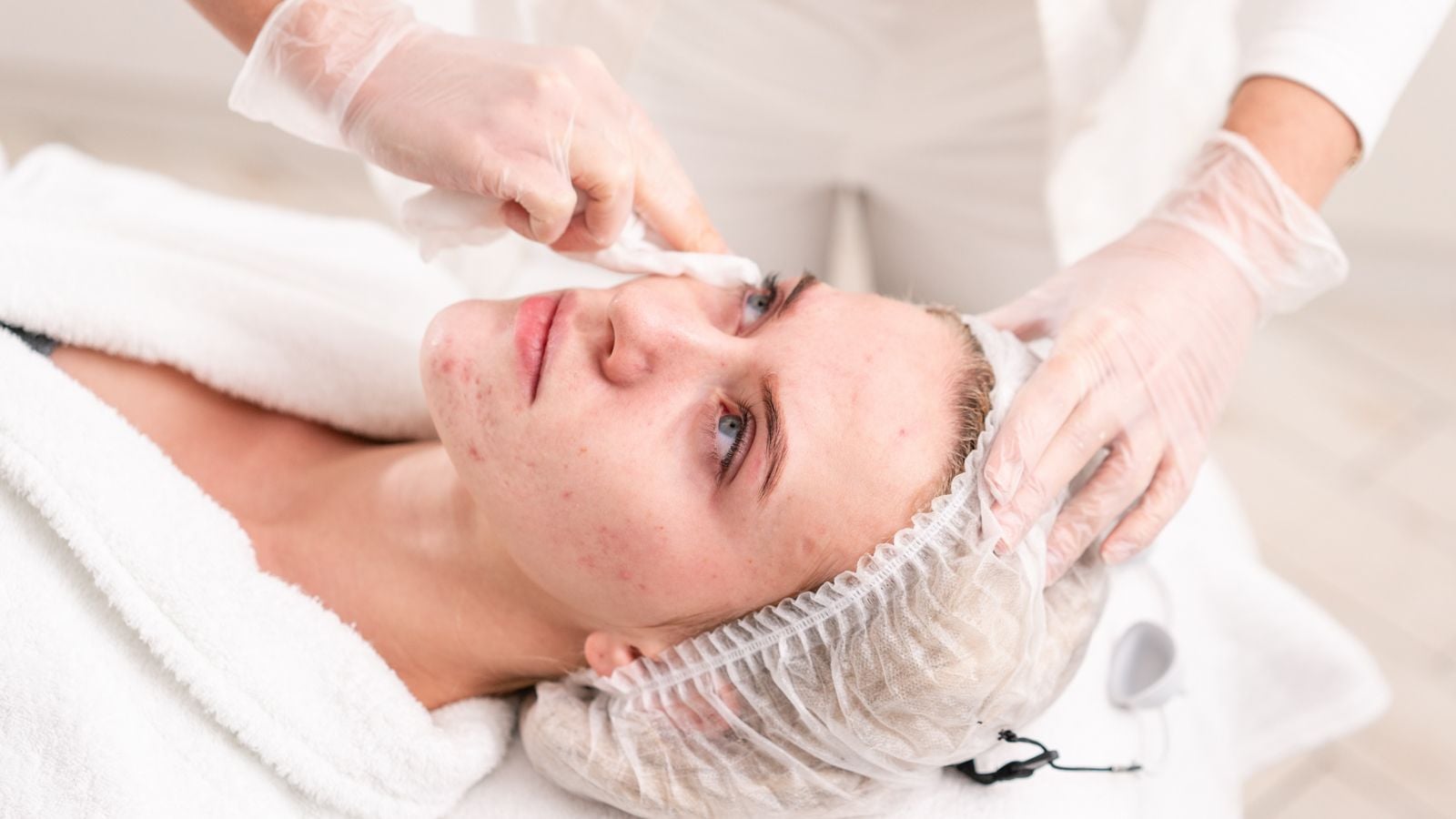
More than half of pregnant women have trouble with acne during pregnancy. You are at higher risk of acne during pregnancy if you’ve had acne in the past. In some cases, the acne may be severe.
What Causes Acne During Pregnancy?
Similar to an adolescent going through puberty, there are higher levels of hormones in the body when you are pregnant. These hormones cause an increase of oil production in the skin and can lead to break outs. Typically, the surge of hormones occurs during the first trimester, so if you don’t develop acne in those first three months, it’s unlikely you’ll have breakout problems during the second and third trimesters. Fortunately, the acne subsides once hormone levels return to normal.
Acne or Pregnancy Rash
There are a few rashes that only occur during pregnancy. One rash, pruritic uticarial pupules and placques of pregnancy (or PUPPP) causes tiny bumps on the belly. This rash occurs in one percent of women who are pregnant and during the third trimester. Although this rash may be itchy or uncomfortable, there is no harm to you or your baby.
What Can You Do About Acne During Pregnancy?
What you put on your skin moves into your body, by way of the bloodstream; therefore, even topical medications have the potential to harm your baby. In general, you should avoid all medications you don’t absolutely need during pregnancy, including seemingly harmless over-the-counter acne medications and chemical spot treatments. Topical acne medications, however, are still safer than oral acne medications, since only about five percent of the topical medication is absorbed into the body.
Two topical prescription medications commonly used for acne during pregnancy are Erythromycin (Erygel) and Azelaic acid (Azelex, Finacea).
Over-the-counter medications containing benzoyl peroxide and glycolic acid may also be an option, but many topical medications have not been adequately studied in pregnancy, so be sure to consult your doctor before starting any acne treatment.
What Acne Treatments Should You Avoid?
Some acne medications, in particular, come with a high risk of birth defects to the developing fetus or a child that is being breastfed. Here are medications experts say to avoid:
Oral medications:
- Isotretinoin. The birth defect risks are so high, women of childbearing age must be on two forms of birth control while on the treatment
- Hormone therapy, such as estrogen and the anti-androgens flutamide and spironolactone
- Oral tetracyclines, such as antibiotics tetracycline, doxycycline and minocycline
Topical medications:
- Tretinoin (Retin-A)
- Adapalene (Differin)
- Tazarotene (Tazorac)
- Salcylic acid, which is found in many over-the-counter products
How Can I Prevent Breakouts During Pregnancy?
The best way to keep your baby safe is to manage your breakouts without medication altogether. Dedicate yourself to a strict cleaning regime and follow these tips:
- Wash your face twice a day with warm water and a mild cleanser
- Avoid over-cleansing, which can overstimulate the skin's oil glands
- Use fingertips to wash your face rather than washcloths, which can irritate sensitive skin and lead to breakouts
- Shampoo daily and keep hair off your face
- Avoid picking or squeezing acne sores, which can spread infection and cause scarring
- Use oil-free cosmetics, such as water-based, noncomedogenic or nonacnegenic facial products
- Avoid resting your face in your hands, which can trap oil and sweat


